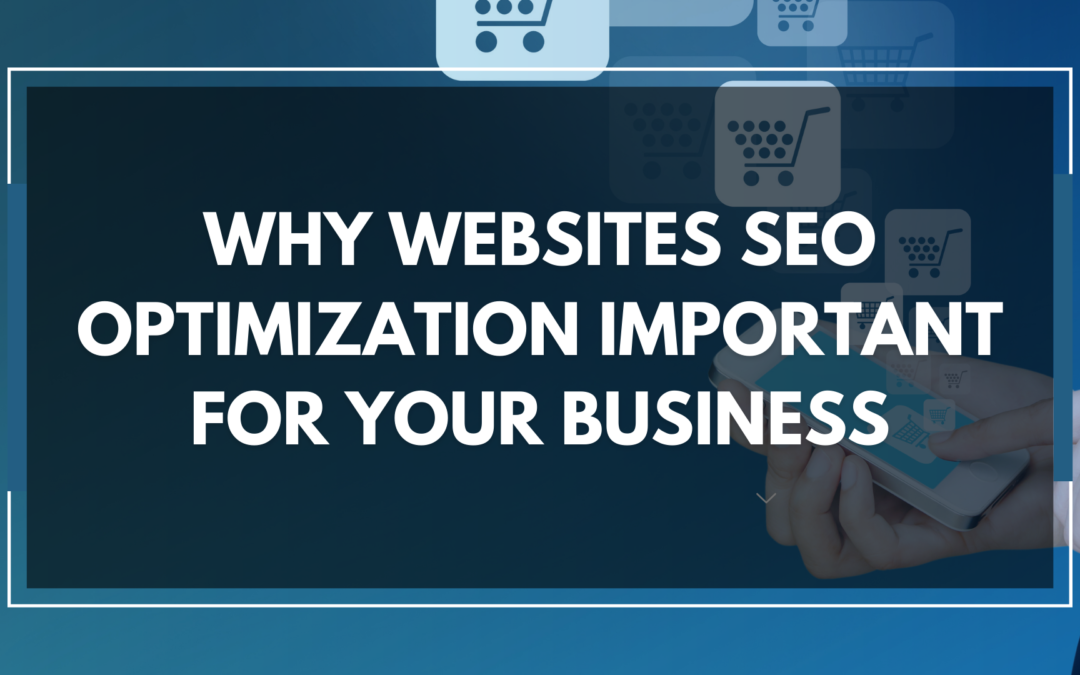Website SEO optimization, mainly known as SEO (Search Engine Optimization), is the process of improving a website’s visibility and ranking on search engine results pages (SERPs). The ultimate goal is to attract more organic (non-paid) traffic to the site by ensuring it appears prominently when users search for relevant keywords and phrases.
How Website SEO Optimization Works
Website SEO optimization involves a series of strategies and techniques aimed at improving a website’s visibility and ranking on search engine results pages (SERPs).
Steps of how Website SEO optimization works:
- Keyword Research: The process of identifying and analyzing the specific words and keywords that users search. This helps businesses understand what their target audience is searching for and how to optimize their content accordingly.
- On-Page SEO: Optimizing single web pages to rank higher and earn more relevant traffic in search engines. This includes optimizing content, meta tags (titles and descriptions), headers, URLs, and images to align with targeted keywords.
- Technical SEO: Involves improving the technical aspects of a website to enhance its search engine visibility and usability. This includes factors like site speed, mobile-friendliness, crawlability, indexability, site architecture, structured data markup, and HTTPS security.
- Off-Page SEO: Use of methods or activities which take place outside of the website itself to improve its search engine rankings. This primarily involves building backlinks (links from other websites to yours), as well as social media marketing, influencer outreach, and other promotional methods.
- Content Marketing: The strategic creation and distribution of valuable, relevant, and consistent content to attract and engage a targeted audience. Content marketing plays a crucial role in SEO by providing the substance that search engines and users are looking for.
- Local SEO: A subset of SEO that focuses on optimizing a website to be found in local search results. It includes strategies like creating and optimizing Google My Business listings, local citations, customer reviews, and localized content.
- SEO Analytics and Reporting: Involves measuring, analyzing, and reporting on the performance of SEO strategies and activities. This includes tracking key metrics such as organic traffic, keyword rankings, backlinks, conversions, and ROI to evaluate the effectiveness of SEO efforts and make data-driven decisions.
Why Website SEO Optimization is Important for Business
Website SEO optimization is crucial for businesses for several reasons:
1. Increased Visibility and Traffic
- Higher Search Rankings: Effective SEO helps your website rank higher on search engine results pages (SERPs), increasing the likelihood that potential customers will find your site.
- Organic Traffic: Unlike paid advertising, organic traffic is free. Higher visibility in search results attracts more visitors to your website without incurring additional costs.
2. Credibility and Trust
- Search Engine Credibility: Websites which appears at the top of search results are considered as as more credible and trustworthy by users.
- Brand Authority: Consistently high rankings establish your business as an authority in your industry, building trust with potential customers.
3. Better User Experience
- Optimized Content: SEO involves creating high-quality, relevant content that meets user needs, enhancing their experience on your site.
- Site Usability: SEO efforts improve site structure, speed, and mobile-friendliness, making it easier for users to navigate and find information.
4. Higher ROI
- Cost-Effective Marketing: Compared to paid advertising, SEO provides a higher return on investment (ROI) over time. Once your site ranks well, the traffic it generates is essentially free.
- Long-Term Results: Unlike paid ads, which stop driving traffic when you stop paying, the benefits of SEO can last for years, continuing to attract visitors long after the initial investment.
5. Competitive Advantage
- Stay Ahead of Competitors: Businesses that invest in SEO can outperform competitors who neglect it, capturing a larger share of the market.
- Local SEO: For businesses with a physical presence, local SEO helps attract customers from specific geographic areas, driving more foot traffic and local sales.
6. Enhanced Engagement and Conversions
- Targeted Traffic: SEO targets users actively searching for products or services like yours, increasing the likelihood of engagement and conversion.
- Improved Conversion Rates: A well-optimized site provides a better user experience, which can lead to higher conversion rates (e.g., sales, sign-ups, inquiries).
7. Insights into Customer Behavior
- Analytics and Data: SEO tools and analytics provide valuable data on customer behavior, preferences, and trends, helping you make informed business decisions.
- Keyword Data: Understanding what keywords users are searching for can inform your content strategy and product offerings.
9. Brand Awareness
- Increased Exposure: Higher rankings increase your brand’s visibility, making more users aware of your business.
- Repeat Visibility: Appearing consistently in search results reinforces your brand in the minds of potential customers.
Conclusion
Website SEO optimization is a critical component of a successful digital marketing strategy. By improving your site’s visibility, credibility, user experience, and engagement, SEO can drive significant business growth.
Learn more and read about SEO Trends 2024: A Glimpse into the Future of Digital Visibility

